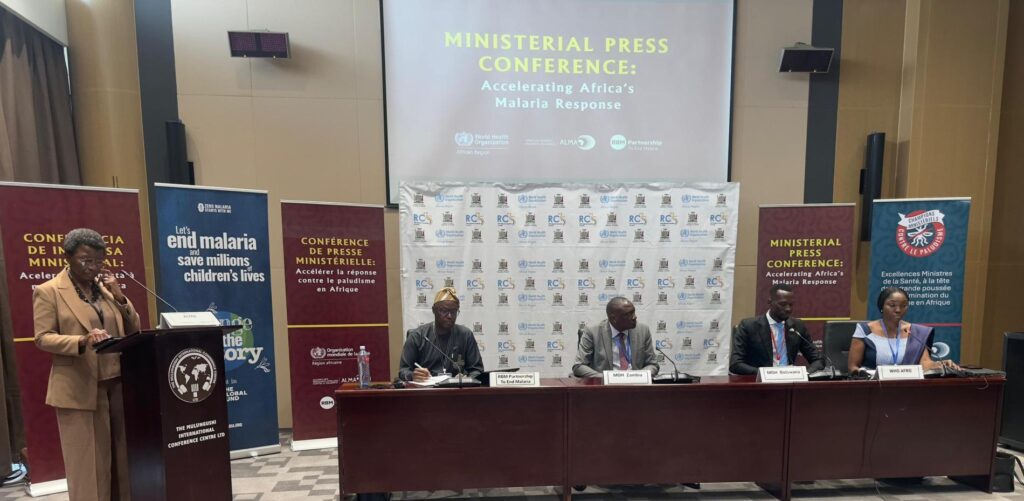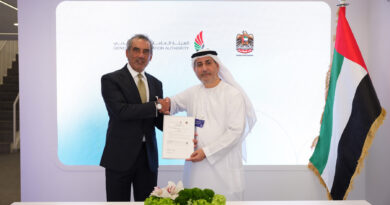African Health Ministers Step Up Malaria Fight with New Commitments and Accountability Scorecard
African Ministers of Health, global health leaders, and partners have pledged renewed political and financial commitment to the fight against malaria, warning of a “perfect storm” of challenges threatening to reverse progress made in recent decades.
The announcement came during a high-level ministerial side-event on the margins of the 75th Session of the World Health Organization’s Regional Committee for Africa (RC75) in Lusaka, where leaders unveiled new commitments under the Ministerial Malaria Champions Initiative alongside a new Accountability Scorecard.
Despite significant progress, including a 16 per cent reduction in malaria incidence between 2000 and 2023, the WHO African Region still bears more than 95 per cent of the global malaria burden. Current gains are now at risk due to shrinking health budgets, growing resistance to medicines and insecticides, invasive mosquito species, and the impact of climate change on transmission patterns. Humanitarian crises and funding cuts from traditional donors have added further strain.
“Malaria is at the frontline of Africa’s health security. We must respond with agility to emerging threats and overcome this perfect storm, otherwise, we risk reversing hard-won progress,” said Dr Mohamed Yakub Janabi, WHO Regional Director for Africa. He called for stronger political will, increased domestic financing, and well-coordinated partnerships to sustain momentum towards elimination.
Echoing the urgency, Dr Michael Adekunle Charles, CEO of the RBM Partnership to End Malaria, stressed that current resources cover less than half of global needs. “To accelerate malaria elimination, we must close the funding gap through bold domestic investment and continued global support. Malaria financing saves lives, strengthens health systems, and enhances Africa’s readiness to confront future pandemics,” he said.
The Ministerial Malaria Champions Initiative was formally launched with 10 Ministers of Health earlier this year. At RC75, additional leaders are expected to join. The initiative empowers health ministers to spearhead national and regional action, mobilise resources, and drive cross-border collaboration, while the Accountability Scorecard provides a common tool to measure progress, share best practices, and ensure leaders are held to account.
“Malaria is more than a health issue, it is a development challenge. Through the Ministerial Champions Initiative, we are mobilising action, strengthening accountability, and ensuring malaria remains at the top of Africa’s development agenda,” said Joy Phumaphi, Executive Secretary of the African Leaders Malaria Alliance (ALMA).
Honourable Lawrence Ookediste, Assistant Minister of Health of Botswana, welcomed the Accountability Scorecard as a vital tool. “As champions, our role is to open political space, mobilise resources, break silos, and help embed malaria into national and regional development agendas. The Scorecard gives us a common reference point, with clarity, accountability, and the full weight of political leadership behind this collective effort,” he said.
Host nation Zambia reaffirmed its leadership through Honourable Dr Elijah Muchima, Minister of Health of Zambia and Chair of RC75. Highlighting Zambia’s efforts, he noted: “Through our End Malaria Council, Zambia has mobilised public and private resources to sustain vector control, procure essential commodities, and support community health workers through initiatives such as the Buy a Bicycle campaign, equipping over 18,600 CHWs with transport to reach rural communities.”
He further called for sustained support for global mechanisms, including full replenishment of the Global Fund.
The Lusaka gathering closed with a joint pledge by Ministers of Health to rally political will, reinforce accountability, and secure sustainable financing to protect communities, safeguard health systems, and reignite momentum towards malaria elimination.



